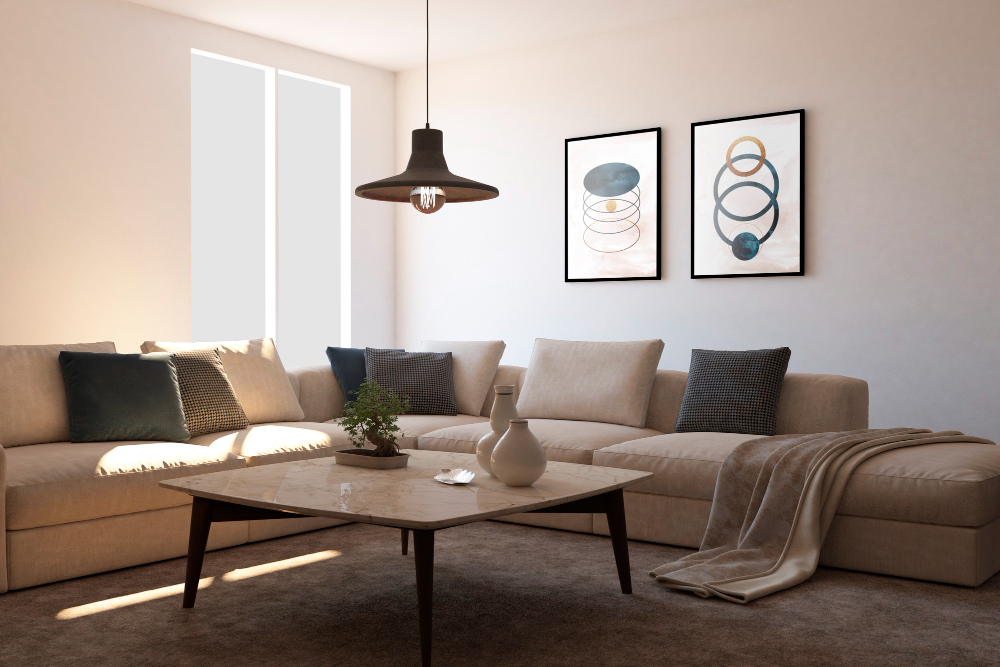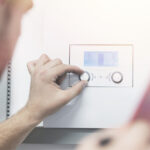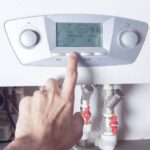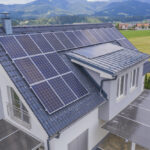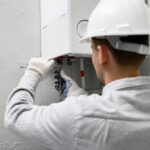Theair conditioner is an essential appliance for many homes and offices, especially during the hot seasons . One of the most frequent debates concerns the continuous use of the air conditioner: is it better to keep it on all the time or turn it off when we are not present?
This decision can significantly influenceenergy consumption, your bills and the overall efficiency of the appliance.
In this article, we will examine the various aspects of this choice to help you answer this question.
Air conditioner : a necessary introduction
Before getting into the details, it is useful to understand what an air conditioner is and how it works.
Air conditioners are designed to regulate the temperature and humidity to the interior of an environment, improving living comfort.
These devices work through a refrigeration cycle which includes components such as the compressor, evaporator and condenser.
How an air conditioner works
An air conditioner takes warm air from inside the house and passes it through a refrigeration system.
Thecompressor comprime il refrigerant, turning it into a high-pressure gas that cools and condenses in the condenser.
The cooled air is then distributed into the internal environment through the evaporator, while the heat is expelled outside.
Energy efficiency of modern air conditioners
Modern air conditioners are designed to be highly energy efficient.
Many models are equipped with advanced technologies such asinverter compressors, which regulate the compressor speed based on cooling needs, thus reducing energy consumption.
Additionally, the use of environmentally friendly refrigerants and insulation materials helps improve overall efficiency.
Consumption energy: keeping it on vs. turn off
One of the main aspects to consider isenergy consumption. Keeping the air conditioner on all the time can ensure a constant temperature and continuous comfort, but it can also lead to a significant increase in energy bills.
On the other hand, turning off the air conditioner when you are not present can reduce the energy costs, but may require greater consumption to bring the temperature back to desired levels upon return.
Environmental impact of air conditioners
The use of air conditioners has aimpatto ambientale significant. In addition to energy consumption, air conditioners emit greenhouse gases due to the refrigerants used.
Many companies are developing greener models that use environmentally friendly refrigerants and advanced technologies to reduce CO2 emissions.
Pros and cons of keeping the air conditioner on all the time
Keeping the air conditioner on all the time offers the advantage of maintaining a constant temperature and a comfortable environment.
This can be particularly useful in areas with extremely hot or cold temperatures. However,energy costs can be high, and wear and tear on the device can increase, shortening its lifespan.
Pros and cons of turning off the air conditioning in your absence
Switching off the air conditioner when you are not present can significantly reduce energy costs and environmental impact.
But it may require more energy consumption to cool the room again upon return. In some cases, hot or cold external air could negatively affect internal comfort.
Air conditioners and energy bills: what affects them the most?
The energy bills can be influenced by various factors, including the frequency of use of the air conditioner, the set temperature and the efficiency of the appliance.
It is also important to consider the insulation of the house and regular maintenance of the air conditioner to optimize energy consumption.
Strategies for efficient use of the air conditioner
Regardless of the choice of keep it on or off, there are several strategies to use your air conditioner efficiently.
Regulating the temperature to moderate levels, using fans to improve air circulation and keeping the filters clean are just some of the ways to reduce energy consumption.
Air conditioner automation and programming
Air conditioner automation and programming can offer effective solutions to balance comfort and energy efficiency.
Usingprogrammable thermostats or home automation systems allows you to set specific times for turning the air conditioner on and off, thus optimizing energy consumption.
Better practices to maintain the efficiency of the air conditioner
To keep the air conditioner efficient, it is essential to carry out regularmaintenance.
Clean or replacing the filters, checking the refrigerant level and verifying the correct functioning of the system can prevent breakdowns and improve efficiency.
Frequently asked questions about using the air conditioner
- Is it more economical leaving the air conditioner on all day? No, turning off the air conditioner when you are not present can reduce your overall energy costs.
- How often should I clean the air conditioner filters?|| |191 Si consiglia di pulire i filtri ogni uno o due mesi per mantenere l’efficienza del sistema.
- Do older air conditioners consume more? Yes, usually the Older air conditioners tend to be less efficient and use more energy.
- What is the ideal temperature for comfort and energy efficiency? The ideal temperature varies, but generally 24- 26 degrees Celsius is considered optimal for comfort and energy saving.
- Does the insulation of the house affect the consumption of the air conditioner? Yes, good insulation reduces the need for cooling or heating and can reduce energy consumption.
Air conditioners and living comfort
Efficient use of the air conditioner can significantly improveliving comfort, mantenendo una temperatura costante e un’umidità ottimale.
This is especially important for people sensitive to heat or cold, such as the elderly and children.
Common myths about air conditioners|| |213
Ci sono diversi miti sull’uso dei climatizzatori, come l’idea che spegnerli e riaccenderli consumi più energia che tenerli sempre accesi.
In reality, turning off the air conditioner when you are not present is generally more efficient.
Emerging technologies in air conditioning
New technologies are revolutionizing the air conditioning industry.
Advanced systems such as dual-stage air conditioning, Inverter compressors and integration with solar energy systems are improving efficiency and reducing environmental impact.
How to choose the right air conditioner for your needs
Choosing the The right air conditioner depends on various factors, including the size of the room, the local climate and your budget.
It is important to consider energy efficiency, technological features and the cost of installation and maintenance.
Long-term investments: is it worth buying an efficient air conditioner?
Investing in an efficient air conditioner may involve higher initial costs, but the long-term benefits in terms of energy savings and comfort can justify the investment.
High-efficiency models can significantly reduce energy bills and last longer.
Conclusion: Balancing comfort, efficiency and economy
The decision to keep the air conditioner always on or to turn it off when absent depends on individual needs and specific conditions.
Balancecomfort,efficienza energetica andeconomy is essential to get the maximum benefit from your air conditioner.
By using intelligent strategies and advanced technologies, you can optimize the use of your air conditioner and reduce energy costs, while improving living comfort.
To guarantee a perfect installation of your new air conditioner and ensure that your air conditioning system is always efficient, contactMister Plumber. Our experts are ready to provide you with professional installation services and maintenance interventions to optimize energy consumption and improve the living comfort of your home or office.

